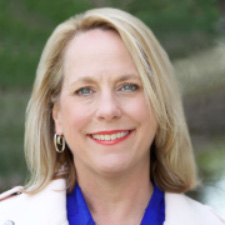Tracks
We have a broad range of topical tracks available to attendees of the 16th Annual Diversity & Leadership Conference. Come hear from leading professionals in healthcare, law, marketing, technology, and many other industries. You can either choose a single track for the duration of the conference or you can attend sessions in different tracks based on your interests. Regardless of which sessions your attend, be prepared to learn, listen, and leave with a toolbox of skills to take back to your organization.
Each session will be tagged by a code to easily facilitate your selection process.
|
Change Management (CM) |
|
|
From undertaking new business ventures to improving existing organizational practices, change within an organization is inevitable. With employee engagement being a driving force behind an organization’s success, it is imperative for top management to actively execute change in order to create a receptive workplace culture. By aligning a structured approach for change with your company’s culture, values, people, and behaviors, you can encourage desired results with lasting benefits. Through systemic tools that prepare, equip, and support individuals to successfully adopt change, the change management track will provide usable knowledge and information that will drive organizational success. |
|
|
Community (C) |
|
|
The social health and development of your community is crucial to organizational success. By identifying weaknesses and adopting practices that improve your community, a mutually beneficial relationship can be achieved. This track provides organizations with the tools necessary to develop cooperative and collaborative attitudes and practices within shared communities. |
|
|
Corporate Social Responsibility (CSR) |
|
|
Diversity & Inclusion (DI) |
|
|
Time and time again, studies show that Diversity and Inclusion has a positive impact on a company’s business. This impact can be seen in many ways such as higher employee retention, increased innovation, engaging culture, greater authenticity, increased customer engagement, broader community outreach, and increased profit margin just to name a few. The objective of this D&I track is to provide you with great learning AND application tools that will help you bring D&I to the forefront of your organization. You will find a variety of D&I topics to choose from such as D&I Metrics, People with Disabilities, Veterans, LGBTQA+, American Indian, Supplier Diversity, Building a foundation for D&I, Unconscious Bias and more. The goal of these workshops is to provide you an opportunity to learn, ask questions and gain valuable tools which you can apply to support your D&I strategy. Chair |
|
|
Education (EDU) |
|
|
Education has long been viewed as a pathway to success. Studies routinely cite the necessity for education, and the vast benefits of higher education such as higher earnings, lower levels of poverty, improved perceptions of health, and greater community engagement. These beneficial advantages intensify when students are in a diverse and inclusive environment. Diversity among students in education directly impacts their performance, and studies show that students work better in a diverse environment, enabling them to concentrate and push themselves further when there are people of other backgrounds working alongside them. Additionally, when talking about diversity, it's essential to recall that the student body is not the only group that should be discussed. Diversity among staff is also important, and faculty diversity, attitudes, and pedagogical practices must adapt and change to ensure inclusion so that students of all backgrounds and cultures feel welcome and valued in a classroom environment. This track explores how diversity and inclusion are necessary factors in accessing and achieving quality education. |
|
|
Emerging Leaders (EL) |
|
|
|
|
|
Entertaiment (E) |
|
|
UCLA’s annual “Hollywood Diversity Report 2018” found that the entertainment industry is lacking in providing audiences with accurate and representative reflections in front of and behind the screens. Our global society is shifting, and audiences want to view diverse talent and diverse cultures reflective of their daily world. This real-world exposure not only fosters positive self-views, but also acceptance and inclusion of others for both the artists and consumers. The purpose of this track is to highlight how talent, leadership, culture, and inclusion can diversify the entertainment industry’s platforms and channels. |
|
|
Global (G) |
|
|
As the world becomes increasingly interconnected, the possibility for companies and organizations to partake in global operations has been significantly more probable. With the popularity of and need for international business, companies must be prepared to face new cultures, values, and business practices in order to maintain positive relationships with business partners and potential consumers. This track explores the benefits of investing in global talents, overcoming conflict within global teams, and the pros and cons of global leadership. |
|
|
HealthCare (H) |
|
|
There are many facets of diversity and inclusion that affect patients, providers and the health care system. The pipeline to training a diverse medical workforce, patients getting equal treatment, persisting health inequities and healthcare disparities, and larger systemic and federal policies all play a role in healthcare in America. In this health care track, we highlight promising strategies and/or programs to address diversity and inclusion, including creating a diverse medical workforce & training pipeline, reducing healthcare and health disparities, understanding state and federal health policies that may affect health and healthcare, the novel role of technology and social media in reducing health inequities, and other interesting societal and environmental factors that can play a role in improving patient health outcomes. We will discuss ongoing diversity and inclusion strategies, and how some of healthcare disparities can be mitigated. Co-Chairs
Jean
Raphael Section Head for Academic Gen. Pediatrics, Assoc. Prof. of Pediatrics, and Assoc. Vice Chair for Community Health, Dept of Pediatrics
Baylor College of Medicine

Jean
Raphael, MD, MPH Section Head for Academic Gen. Pediatrics, Assoc. Prof. of Pediatrics, and Assoc. Vice Chair for Community Health, Dept of Pediatrics
Baylor College of Medicine
Jean L. Raphael, M.D., M.P.H. is Section Head for Academic General Pediatrics, Associate Professor of Pediatrics, and Associate Vice Chair for Community Health in the Department of Pediatrics at Baylor College of Medicine. He is a nationally recognized health services researcher with a focus on improving systems of care for underserved and minority children with chronic conditions. He has been funded by the National Institutes of Health, Patient-Centered Outcomes Research Institute, and Health Resources and Services Administration. Dr. Raphael's research is complemented by policy efforts toward improving the care of vulnerable populations. He is founding Director of the Center for Child Health Policy and Advocacy at Texas Children’s Hospital. Nationally, Dr. Raphael serves as Chair of the Public Policy and Advocacy Committee of the Academic Pediatric Association. He is a past appointee of the Lieutenant Governor to the Texas Health Disparities Task Force. Dr. Raphael’s awards have included the Research Mentorship Award from the Department of Pediatrics at Baylor College of Medicine, Health Advocacy Award from Doctors for Change, and Meritorious Service Award from the Texas Health and Human Services Commission. Dr. Raphael received his B.A. from Williams College, M.D. from Harvard Medical School, and M.P.H. from the Harvard School of Public Health. He also completed the Commonwealth Fund Harvard University Fellowship in Minority Health Policy. Dr. Raphael is a practicing primary care pediatrician, serving underserved children throughout Houston. 
Keila
Lopez Assistant Professor of Pediatrics in the Section of Pediatric Cardiology
Texas Children’s Hospital/Baylor College of Medicine

Keila
Lopez, MD, MPH Assistant Professor of Pediatrics in the Section of Pediatric Cardiology
Texas Children’s Hospital/Baylor College of Medicine
Keila N Lopez, MD, MPH is an Assistant Professor of Pediatrics in the Section of Pediatric Cardiology at Texas Children’s Hospital/Baylor College of Medicine. Dr. Lopez is a nationally recognized pediatric cardiologist, with expertise in non-invasive cardiac imaging, transition medicine, and health disparities research. After completing her B.A and B.S. from the University of Illinois in Champaign-Urbana, IL, she completed her Pediatric residency at the University of Chicago and her Pediatric Cardiology training at Texas Children’s Hospital/Baylor College of Medicine, where she additionally completed a year of training in advanced non-invasive imaging. Dr. Lopez also completed a Master of Public Health through the Commonwealth Fund Harvard University Fellowship in healthcare management and minority health policy. Her research portfolio reflects a longstanding commitment to addressing health disparities, as evidenced by several grants and publications in this area. She has lead teams to conduct multidisciplinary work using large databases and GIS mapping to better understand the connection between health, socioeconomic status, neighborhood level factors and access to quality healthcare. She has received a NIH National Heart Lung and Blood Institute funding for technology-based interventions to reduce health disparities, and was a recipient of a 2012 NIH Comparative Effectiveness Research Training Award at Columbia University, and the 2018 NIH National Institute on Minority Health and Health Disparities (NIMHD) Health Disparities Research Institute award. She is a co-investigator for the Texas Children’s Hospital Policy and Advocacy Center and is a committee member for the Council on Lifelong Congenital Heart Disease and Heart Health in the Young for the American Heart Association. Overall, Dr. Lopez seeks to incorporate cardiology, public health, technology and minority health policy in order to develop research initiatives that directly inform health policy and improve the health care of underserved and minority populations. |
|
|
Human Resources (HR) |
|
|
With the rise of issues regarding diversity and inclusion, placing a focus on related initiatives are imperative to being an accomplished Human Resources professional. Diversity and inclusion are of utmost importance when it comes to areas such as hiring practices, administration, inclusion initiatives, and personnel training. This track will highlight the areas for improvement in common HR practices as well as the importance of prioritizing inclusion in the workplace. |
|
|
Latino (LA) |
|
|
Despite the growing importance of Latino participation in the labor market and their growing number in specialty professions, many Latinos face barriers to advancement in the labor force and workplace. Due to historical biases and systemic disadvantages, the Latino community must actively work harder for representation across all sectors.
|
|
|
Leadership (L) |
|
|
Leadership; while some define one’s leadership by their charisma or their top office position, the reality is that anyone can be a leader with the proper training. Individuals desiring to be transformational and effective leaders can attend events under our leadership track to gain the knowledge and insight they need to develop the skills they need. By learning the importance of inclusive environments and emotional intelligence, those attending sessions under this track can take steps towards reaching their full leadership potential and overcoming leadership challenges. Young leaders looking to progress in their professional development can also attend events under the sub-track emerging leaders. |
|
|
Legal (LE) |
|
|
In an increasingly diverse society, the legal field remains one of the least diverse professions in America. Facing great barriers to partnership and corporate leadership, qualified women and people of color are not advancing in their legal careers. Though studies reveal that diversity is good for business, leadership in the legal field must address underlying issues through diversity initiatives in order to reap the benefits of the modern world. |
|
|
Master of Business Administration (MBA) |
|
|
Deciding to get a Master’s in Business Administration is a great step in preparing to enter the competitive business world of today. Apart from just signaling a credential, earning an MBA degree can accelerate your business career, help you learn new skills and build a network that will put you on track for success and lead you to management and leadership opportunities you wouldn't have otherwise received
|
|
|
Marketing / Advertising (MARK) |
|
|
While diversity and inclusion may only be two components of an effective marketing campaign, they are often the root cause of major marketing mistakes. Considering diversity and inclusion in marketing and advertising is imperative to creating impactful campaigns. Similarly, it is critical in successfully connecting to your target audiences. This session will delve into diversity best practices any marketer would need to create inclusive marketing strategies. |
|
|
Multiculturalism (M) |
|
|
The collision of cultures in the workplace ensures that mastering multiculturalism is a must for all business professionals. As technology continues to digitize workforce operations and as inclusive practices eliminate discriminatory barriers, the diversity of employees, business partners, and managers are skyrocketing. Even in our own home companies, the numbers are beginning to tip. This track focuses on developing skills for operating and thriving in an increasingly multicultural environment. |
|
|
Organizational Health (OH) |
|
|
With increasing global competition, the focus on hitting the numbers alone is no longer enough. In order to ensure tomorrow’s survival, grow shareholder value, and maintain a competitive advantage, focusing on organizational health is crucial. With tailored systemic practices of alignment, adaptivity and implementation, a healthy ecosystem can be achieved.
|
|
|
Professional Development (PD) |
|
|
Waiting around for your organization to give you opportunities to develop your skills is asking to remain stagnant. In order to achieve career advancement, investing in yourself is key to success. With an extremely competitive workforce, becoming an active learner and promoter of your skill will allow you to remain competent, exploit opportunities ,and move up the ladder. By providing insight into the importance of continued training, certification, and education, the professional development track grants attendees the ability to better position and market themselves in the modern workplace. |
|
|
Social Justice (SJ) |
|
|
STEM (STEM) |
|
|
In an increasingly diverse nation, the demographics of the STEM field have remained stagnant. With an aging workforce and low youth recruitment, STEM fields face great problems in industry longevity and talent development. In looking for the next generation of STEM professionals, it is crucial to put diversity and inclusion in the forefront. As the quality of STEM productions is largely dependent on those producing it, the lack of diversity across STEM fields is a loss of greater research and innovation. The purpose of this track is to provide insight into the barriers that block youth from going into STEM and practices that target the cultivation and recruitment of women and minorities in STEM fields. |
|
|
Talent (T) |
|
|
An organization’s best chance at surviving the dynamic nature of the modern world is to match their environment. Research shows that an organization that actively creates a culture of diversity and inclusion boasts productivity and profits. In order to cultivate this diverse workplace, the integration of Diversity and Inclusion in talent management is crucial to the effectiveness of attracting, developing, and retaining talent. The Talent Track provides managerial and organizational practices that will help you assess and strengthen your organization’s talent life cycle. |
|
|
Women of Color (WC) |
|
|
Systemic barriers in society have long prevented qualified women of color from advancing in their careers. The lack of women of color in leadership positions is not just a loss of diversity, but also a loss of unique perspectives and talents. The objective of Women of Color track is to provide insight into the problems faced by WOC in the workplace, the importance of remaining resilient, and how to create a fair and supportive workplace environment for all. |
|


The welfare of our society depends greatly on the distribution of access to wealth, opportunities, and privilege. By promoting diversity and equity and ensuring continued innovation and growth, social justice benefits everyone from the bottom to the top of the ladder. While the 20th century has seen great advances in social justice, we have a long way to go to achieve true equity in social, political, and economic rights across all categories of identification.
The purpose of this track is to provide insight into why social justice is necessary and issues in achieving it.